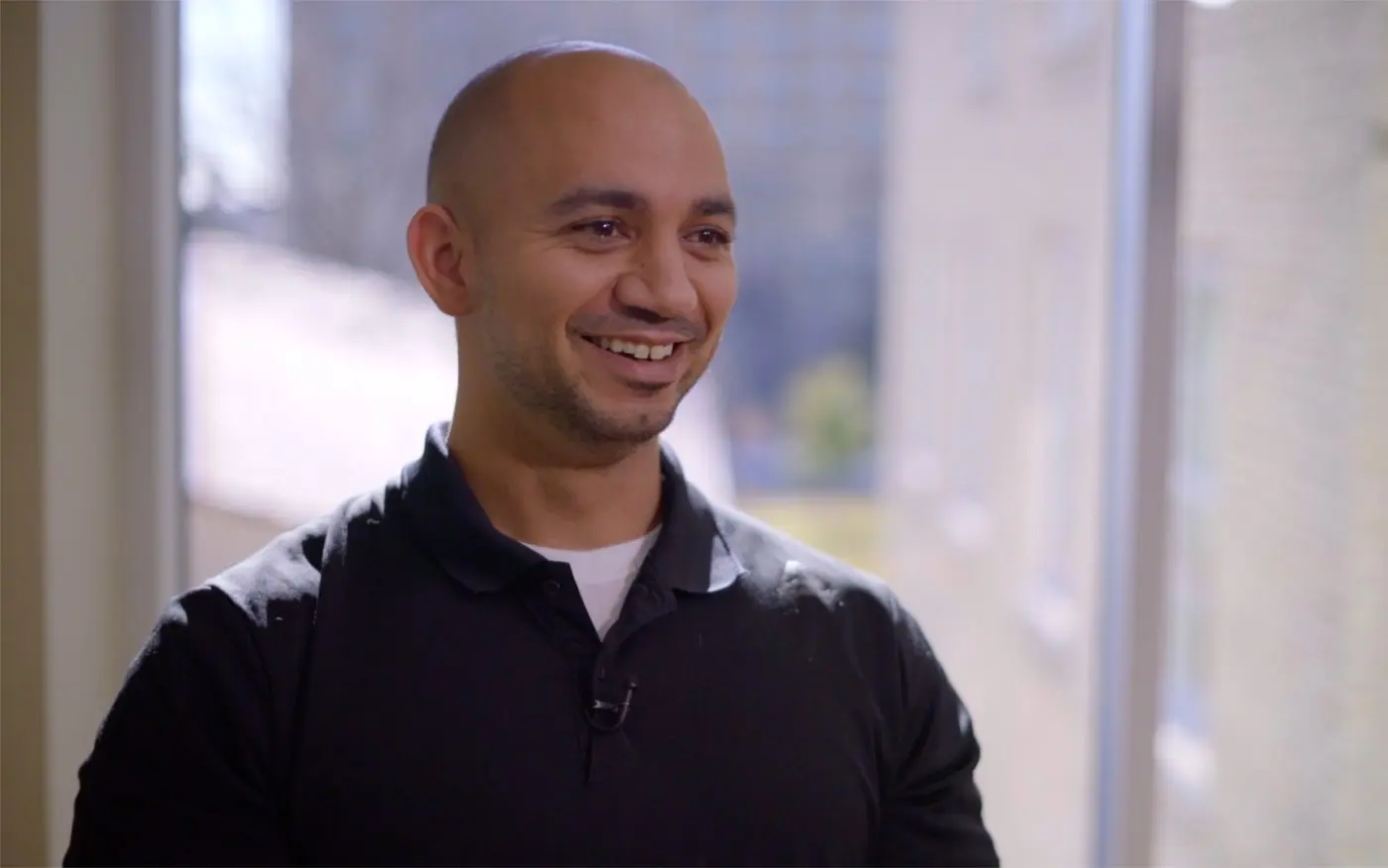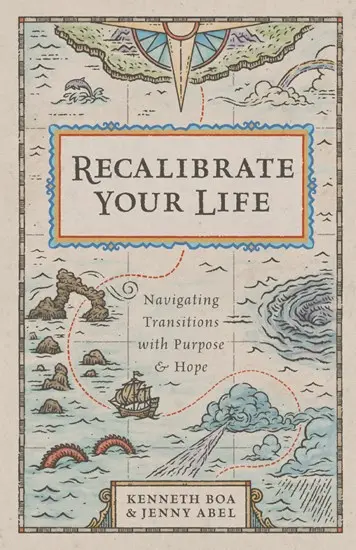These words begin seminary professor Nate Hoff’s testimony, which you can watch here.
Besides simultaneously dealing with his wife’s health problems and the loss of their child, he explains, his mental health struggles sent him spiraling into crisis that year.
“I remember huddling in the shower crying,” Nate recalls. “Rather than being conformed in the image of Christ, I felt like I was moving in the opposite direction.”
At one point, he had thoughts that made him scared of himself. So he called a friend and asked him to take him to the emergency room. When Nate arrived, the triage nurse listened to his story, left the room … and returned with a police officer. At that moment, Nate says, he felt everything in his life was culminating into a “colossal moment of failure.”
“Rather than being conformed in the image of Christ, I felt like I was moving in the opposite direction.”
—Nate Hoff
Nate committed himself to a medical facility. The next day, his wife, who had just had surgery on her vertebrae the day before, came to visit her husband. She brought him a Bible and asked him to read Lamentations 3:22–23—verses he read over and over for the next week:
The steadfast love of the Lord never ceases;
his mercies never come to an end;
they are new every morning;
great is your faithfulness. (ESV)
As he turned the truth of these verses over and over in his mind, it started to sink in.
Hope returned.
“What I want people to know, as they experience the inevitable sufferings of this life,” Nate says, “is to not allow the suffering to determine what you believe to be true about God.”
Watch Nate Hoff’s Testimony:
Hope in Adversity
The hope Nate Hoff regained in his suffering didn’t come about as a result of conjuring up good feelings or wishful thinking. As he testifies, his hope came as a result of the experience of God’s presence in the midst of his adversity—in all its messiness.
Hope came as a result of the experience of God’s presence in the midst of his adversity.
This hope is the “living hope” Peter speaks about in his first epistle:
Blessed be the God and Father of our Lord Jesus Christ! According to his great mercy, he has caused us to be born again to a living hope through the resurrection of Jesus Christ from the dead, to an inheritance that is imperishable, undefiled, and unfading, kept in heaven for you, who by God’s power are being guarded through faith for a salvation ready to be revealed in the last time. (1 Peter 1:3–5 ESV)
Only this type of hope, resting in a sure and steady object that will never move, can withstand the heat of the hottest trial by fire.
This kind of hope doesn’t always look or feel triumphant, nor does it always come with happy feelings. Sometimes it slowly seeps into your soul, overtaking the pockets of despair. And it can still exist side by side with normal human sorrow over the pains of life. This is what happened for John R. Claypool, whose book Tracks of a Fellow Struggler documents his journey through grief upon the diagnosis of cancer and eventual death of his young daughter:
As I watched my little daughter suffer, I could see no reason or purpose in what was happening to her. . . . At times I was not far from looking up and shouting: “Just what on earth do You think You are doing in all of this anyway?” At other times the temptation to despair was very strong, when I felt like saying: “I quit. I give up. I can’t stand it any longer. Stop the world. I want to get off.” . . . But I am here to report that I did not succumb to either [temptation, presumption or despair].[note]Quoted in Kenneth Boa with Jenny Abel, Shaped by Suffering: How Temporary Hardships Prepare Us for Our Eternal Home (Downers Grove, IL: InterVarsity Press, 2020), 51–52. [/note]
Instead, in the midst of his suffering, the promise of Isaiah 40:27–31 came true for Claypool. Even when he was weary and he found himself stumbling in the darkness, God renewed his strength. He caused Claypool not so much to “soar on wings like eagles” or to “run and not grow weary,” but He did help him “walk and not be faint” (v. 31 NIV). Claypool, though grief-stricken, was able to keep on keeping on. Why? Because of the living hope he found in Christ alone.
Watch more testimonies of those who’ve found hope amidst suffering
Overcoming Hopelessness
If you’re reading this, chances are you are in the midst of some kind of pain or adversity or you know someone who is. Suffering is all around us. It takes innumerable forms—physical, emotional, mental, relational, financial, spiritual. It can come from within or from an external source. It can be inflicted upon us due to no discernable fault of our own, or it may stem all or partially from our own wrongdoing. It may include a spirit of depression, anxiety, or restlessness that we simply can’t shake.
God only knows the full extent and exact reasons for each of our struggles. He also knows the way through them.
God cares about your sufferings, and He wants you to take them to Him, casting them on Him (1 Peter 5:7). He also wants to use your hardships in this temporal arena to shape you for eternity—to transfer your hope from this world to the next. He wants you to know that even if your prospects on this earth, or those of a loved one, don’t improve (or worsen), He is preparing a place for you, an infinitely better place, if you have trusted Christ for salvation (John 14:3).
God wants to use your hardships … to transfer your hope from this world to the next.
He wants you to know that even amidst change, uncertainty, and difficulty on earth, He is unchanging: He is the same, yesterday, today, and forever (Hebrews 13:8). He is the solid rock on which you can stand, the place you can lean your full weight on and not worry that it will give way.
Today, if you feel your hope has been cut off or dimmed, make the psalmist’s words your prayer to the One who loves you with an everlasting love:
I wait patiently for you, Lord.
Incline to me and hear my cry.
Bring me up out of the pit of destruction, out of the miry clay,
And set my feet upon a rock, making my footsteps firm.
Put a new song in my mouth, a song of praise to You.
May I and others see and fear
And trust in You. (Based on Psalm 40:1–3 NASB)
For more on hope in suffering, get Ken Boa’s book Shaped by Suffering, released in February 2020.



